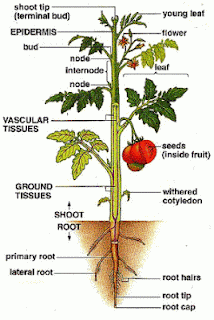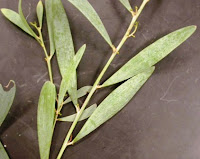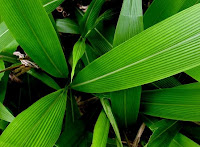a) fruits
b) cotyledon
c) tracheids
d) broad leaves
2. If seed is defined as an ovule modified as a result of
fertilization, one may expect to find seed in
a) all vascular plants
b) angiopsperm only
c) gymnosperm only
d) phanerogams
3. The branch of botany that deals with the form of the plant is known
as
a) physiology
b) anatomy
c) morphology
d) cytology
4. The roots which develop from any portion of the plant except the radical
are known as
a) tap roots
b) stilt roots
c) fibrous roots
d) adventitious roots
5. The arrangement of leaves on branches
a) Phyllotaxy
b) vernation
c) venation
d) phytotaxy
6. Red root is another name of
a) beet root
b) sugar cane root
c) potato root
d) none of the above
7. Branches of stem are
a) exogenous in origin
b) endogenous in origin
c) partially endogenous and partially
exogenous
d) superficial
8. Leaf less stem of onion which is produce to bear flowers is called
a) peduncle
b) rachis
c) floral axis
d) scap
9. Phyllode is nothing but a leaf modification meant for photosynthesis
is an adaptation
a) xerophytic
b) hydrophytic
c) mesophytic
d) thallophytic
d) thallophytic
10. Thick and woody climbers are called as
a) suckers
b) climbers
c) lianas
d) creepers
11. Parallel venation are found in
a) monocots
b) dicot stem
c) dicot root
d) none of these
12. Angiosperm differ from the gymnosperms
a) in having compound leaves
b) being evergreen
c) being smaller in size
d) in having ovules enclosed in
ovary
13. Which of the following feature distinguish a monocot from a dicot
plant
a) phyllotaxy
b) venation
c) vernation
d) aestivation
14. The axillary buds arise
a) endogenously from the pericycle
b) endogenously from the main
growing point
c) exogenously from the inner cortical
layers
d) exogenously from the epidermis
a) root
b) stem
c) radicle
d) plumule
Answers:
1-a
|
2-d
|
3-c
|
4-d
|
5-a
|
6-a
|
7-a
|
8-d
|
9-a
|
10-c
|
11-a
|
12-d
|
13-b
|
14-c
|
15-b
|
Tags:
adventitious roots
angiospems
angiosperm
bulb
flowering
flowering plant
morphology
phyllode
red root



